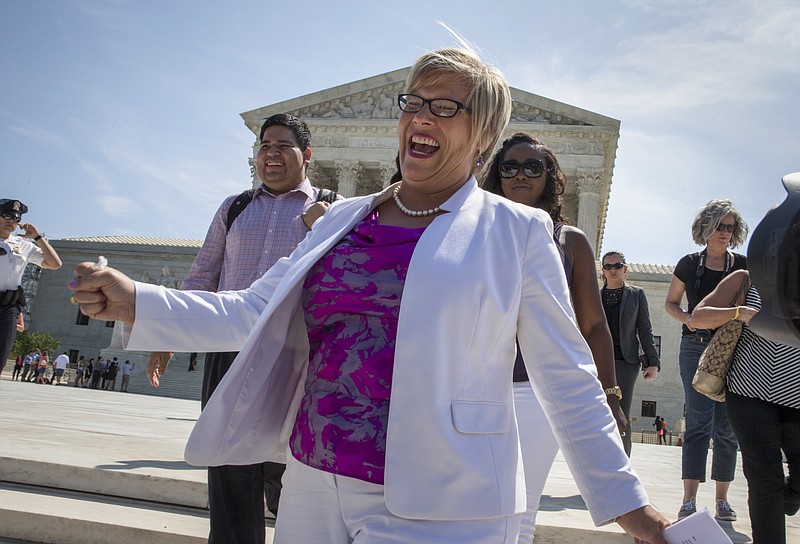Also read...
* High court's ruling on Texas abortion law highlights divide among Tennesseans * Abortion ruling may not open door for new Texas clinics
MONTGOMERY, Ala. - Alabama Attorney General Luther Strange said Monday that his office will end the legal fight over an abortion clinic requirement after the U.S. Supreme Court struck down a nearly identical Texas law.
Strange said his office will stop trying to reinstate a provision of a 2013 Alabama law that required abortion doctors to have admitting privileges at a local hospital. Justices in a 5-3 decision Monday overturned a Texas law requiring admitting privileges and requiring clinics to meet the same building standards as ambulatory surgical centers.
"While I disagree with the high court's decision, there is no good faith argument that Alabama's law remains constitutional in light of the Supreme Court ruling," Strange said.
A federal judge in 2014 ruled the Alabama law was an undue burden on women's ability to access abortion because it would cause most of the state's abortion clinics to close. Strange said Monday that his office will dismiss an appeal of that decision.
Susan Watson, executive director of the American Civil Liberties Union of Alabama, praised the Supreme Court ruling as a victory for women and abortion access.
"It's great news for the clinics and for the women of Alabama and ensures their right to a safe and legal abortion," Watson said.
Planned Parenthood and the ACLU had filed a lawsuit challenging the Alabama law. If the admitting privilege requirement was enforced, as many as four of the state's five abortion clinics would close. Clinics typically use doctors from out-of-town who could not qualify for local hospital privileges.
Alabama and Texas had argued the provision was needed to protect women's health, while opponents argued it was an attempt to end access to abortion by creating regulations that clinics could not meet.
Gov. Robert Bentley, who signed the Alabama legislation into law, said in a Monday statement that he was disappointed by the decision.
Bentley, a physician who also describes himself as anti-abortion, said the Supreme Court was "making a medical ruling, without any sound medical expertise."
"The conscious decision to end human life should never be cause for celebration in a civilized society. There is value to all human life and all humanity," Bentley said.
Alabama had submitted an amicus brief to the U.S. Supreme Court in support of the Texas statute.
